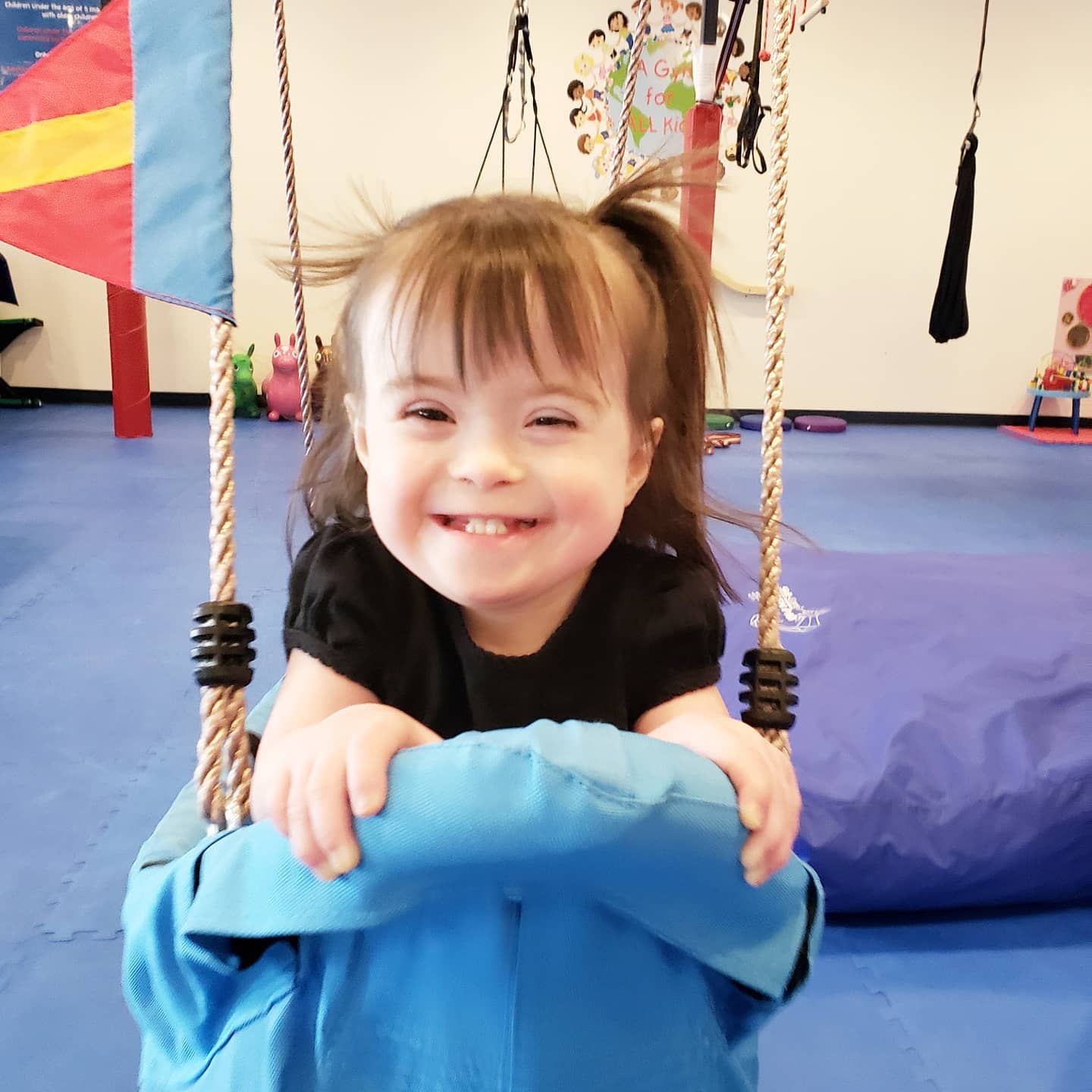
Down Syndrome Awareness Month: What you Need to Know
October 16, 2020 | In: Autism Resources , Why We Rock

October is Down Syndrome Awareness Month. This month, we are given the opportunity to celebrate great accomplishments and raise awareness about what our fellow We Rockers with Down syndrome need from their community. Those living with Down syndrome face unique challenges, and it is important that we continue empowering them to reach their full potential by educating ourselves and one another.
Let’s take a closer look at Down Syndrome Awareness Month and some of the common misconceptions that surround those with Down syndrome.
What is Down Syndrome?
Down syndrome is a condition in which a person holds an extra chromosome. While a neurotypical child is born with 46 chromosomes, a child with Down syndrome has an extra copy of chromosome 21. This extra copy changes how the infant’s body and brain develop, which can lead to different abilities and appearances.
Down syndrome continues to be the most common chromosomal condition diagnosed in the United States. Each year, about 6,000 babies born in the United States have Down syndrome, which means that this genetic condition occurs in about 1 in every 700 babies.

Preferred Language for People with Down Syndrome
People who have Down syndrome are all unique individuals and should be acknowledged as a person, first and foremost. Here is a quick language guide when referring to Down syndrome and those who have it:
- Down’s syndrome is only a part of the person; refer to an individual as “a person with Down syndrome”.
- You should never refer to the individual as “a Down syndrome person” or “Down’s person”.
- Down syndrome is a condition or a syndrome, not a disease.
- People “have” Down syndrome; they do not “suffer from” it and are not “afflicted by” it.
- “Differently-abled” is the preferred term for many.
- The appropriate term is “intellectual disability” or “cognitive disability,” not “mental retardation”.
- “Typically developing”, “typical”, or “neurotypical” are preferred over “normal”.
- You should not use “Down’s” as an abbreviation; use Down syndrome or DS as an abbreviation, if necessary.
Fact or Fiction? Down Syndrome Facts
When speaking about any issues relating to Down syndrome, it should be done in a way that is both factually accurate and sensitive to those who have Down syndrome, their families, and the people who support them. To ensure that you are not perpetuating any myths about the condition, here some facts to guide you:
1. Fact or Fiction: People who have Down syndrome don’t live very long.
Fiction – People with Down syndrome do have an increased risk for certain medical conditions such as congenital heart defects, respiratory and hearing problems, Alzheimer’s disease, childhood leukemia, and thyroid conditions. However, many of these conditions are now treatable, so most people with Down syndrome lead healthy lives.
Today, people who have Down syndrome are living longer than ever before. In fact, as many as 80% of adults with Down syndrome reach age 60, and many even live well into their 70’s and beyond.
2. Fact or Fiction: Only older mothers have babies who have Down syndrome.
Fiction – Although older women have an increased chance of having a child with Down syndrome, 80% of children with Down syndrome are born to women under 35 years of age due to higher birth rates in this age group.
Nothing a parent does or does not do is known to cause Down syndrome during pregnancy – it occurs randomly. Even though maternal age is a factor that has been linked to an increased chance of having a baby with Down syndrome, the genetic condition can originate from either the father or the mother.
3. Fact or Fiction: People who have Down syndrome can achieve normal life goals.
Fact – With the right support, many people with Down syndrome can lead long and fulfilling lives. Quality educational programs, a stimulating home environment, good health care, and positive support from family & friends enable those with Down syndrome to lead fulfilling and productive lives.
Fortunately, individuals with Down syndrome are becoming increasingly integrated into society and community organizations, such as school and health care systems. Like others, they attend school, work, participate in decisions that affect them, have meaningful relationships, vote, and contribute to society in many impactful ways.

4. Fact or Fiction: People who have Down syndrome all look the same.
Fiction – While those with Down syndrome do have certain common physical characteristics, a person who has Down syndrome will always look more like his or her family than someone else with the condition.
5. People who have Down’s syndrome are always happy and affectionate.
Fiction – Again, Down syndrome is only part of a person. People with Down syndrome are unique individuals who should be addressed as people first. They are no different than neurotypical individuals in their personality traits and varying moods.
Down Syndrome Awareness Month is not about celebrating disabilities, it’s about celebrating abilities! Although we can’t physically celebrate together due to the pandemic, we at We Rock the Spectrum are still dedicated to creating an inclusive environment for children of ALL abilities whenever we can. We hope our We Rockers stay safe and continue spreading the message of inclusivity!